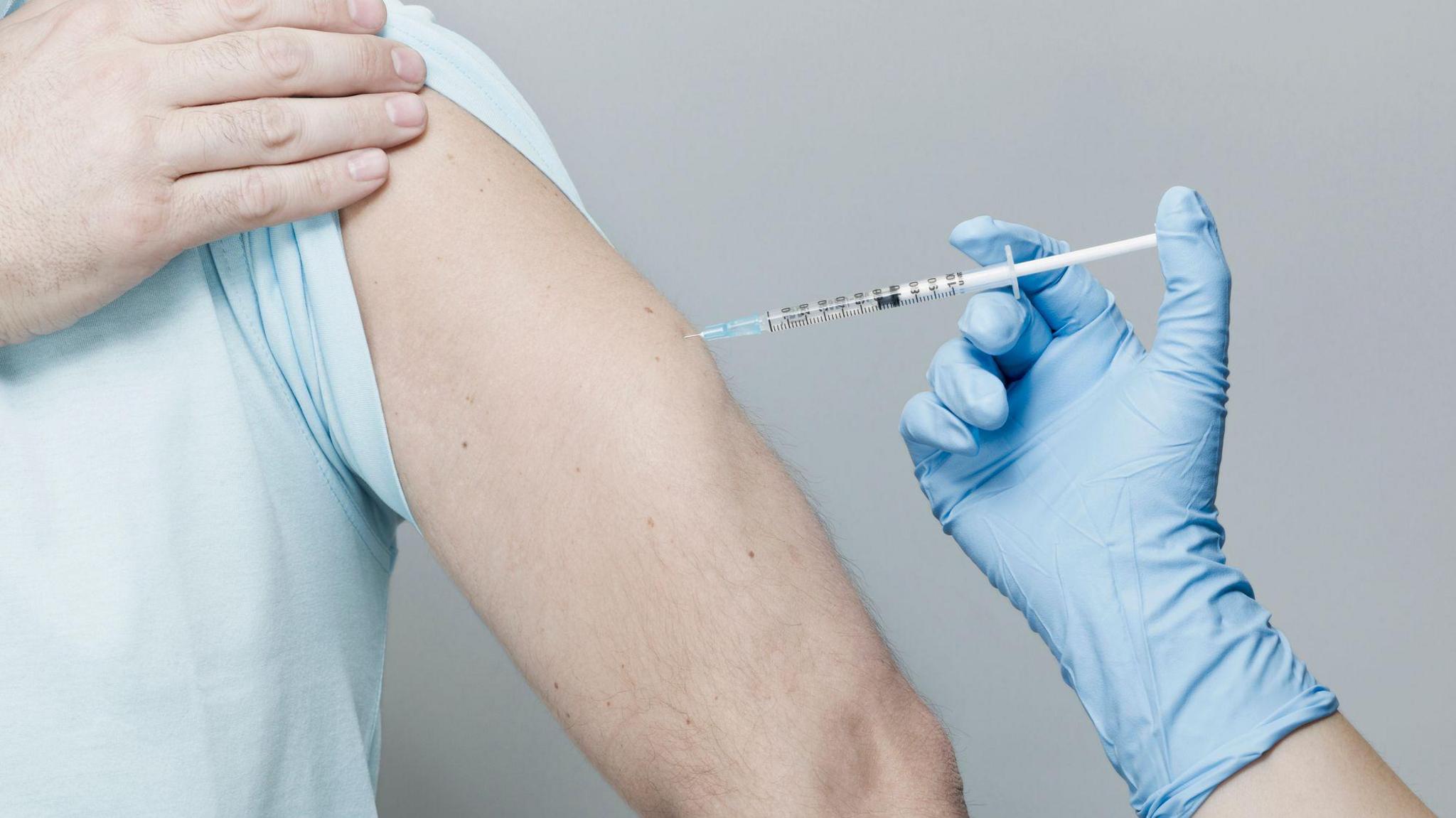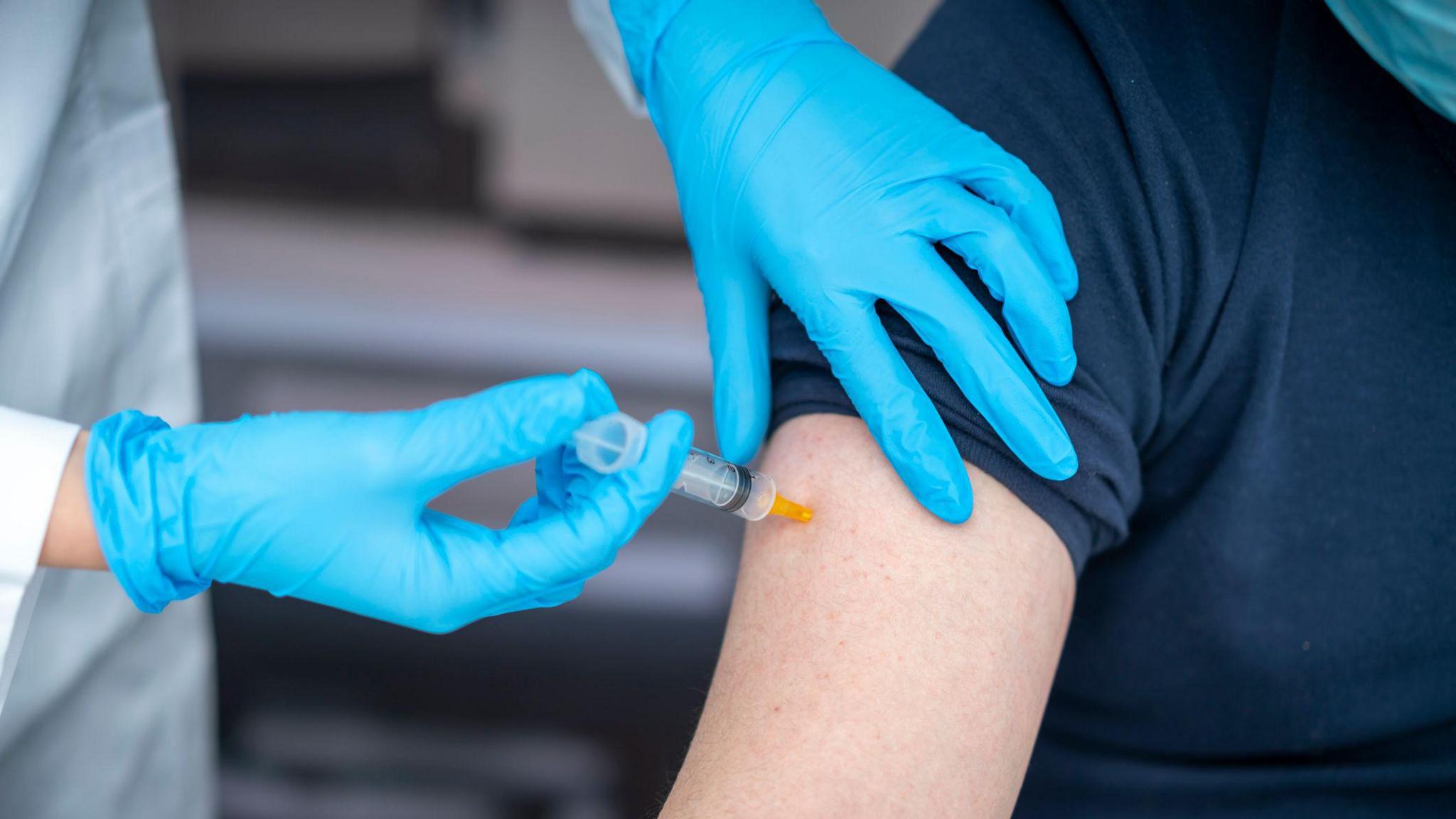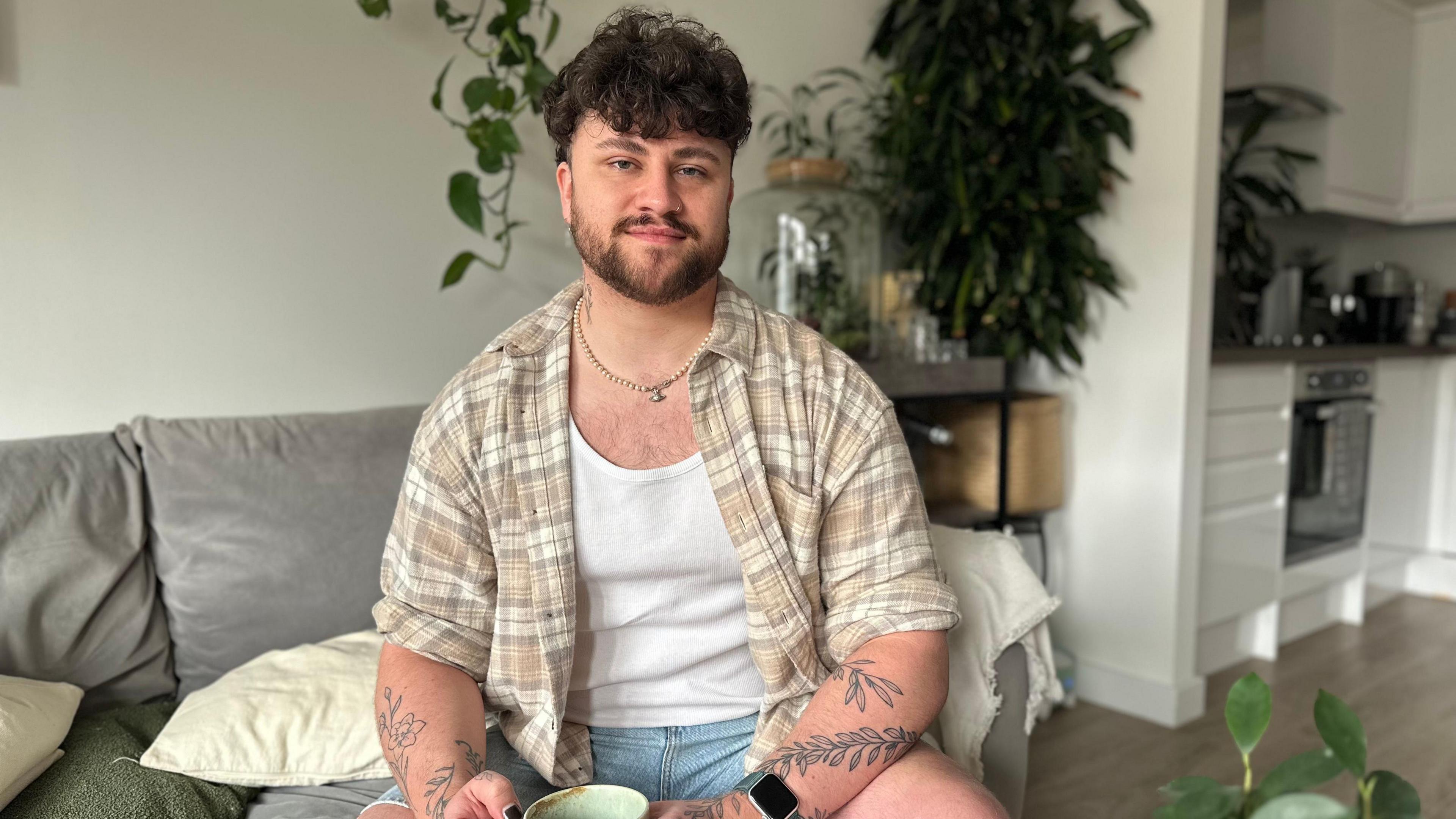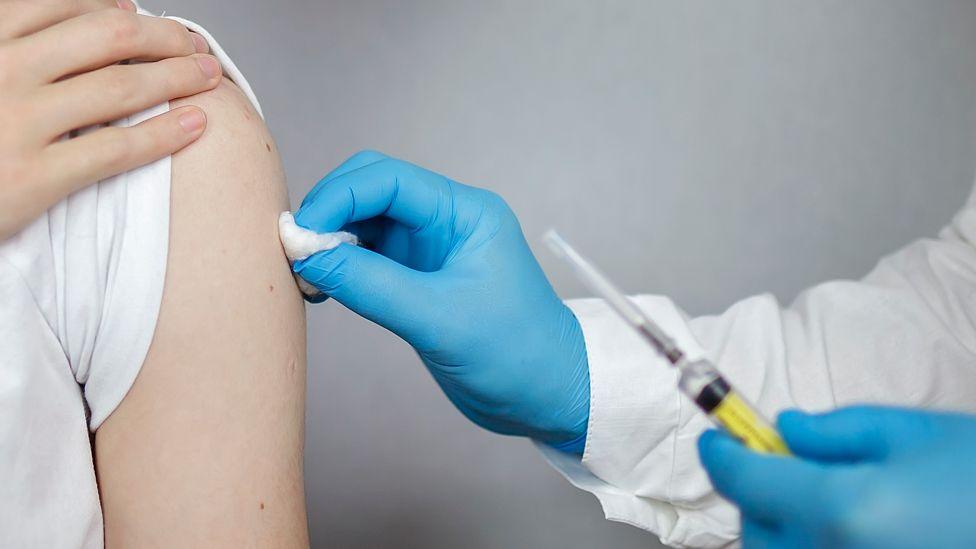Gonorrhoea vaccine rollout in Scotland begins

Scottish cases of gonorrhoea are up 59% on pre-pandemic levels
- Published
A gonorrhoea vaccine rollout has begun in Scotland following a UK-wide rise in cases.
The illness, which is the second most common sexually transmitted infection (STI) in Scotland, is potentially painful and in rare cases can be life-threatening.
The vaccine programme, which was introduced in England last month, will be offered to gay and bisexual men, trans women and anyone who's had a bacterial STI in the past two years.
Public Health Minister Jenny Minto said the campaign was "urgent and timely since the number of diagnoses has been high and the disease is becoming increasingly difficult to treat with antibiotics".
Scottish cases of gonorrhoea have risen in recent years, with 5,999 infections in 2023 - a rise of 59% from before the Covid pandemic.
The STI that's back and all you need to know
Those most affected by gonorrhoea in the UK are people aged 16 to 25, gay and bisexual men, and those of black and Caribbean ancestry.
Doctors and charities called for vaccinations earlier this year after the UK's joint committee on vaccination and immunisation (JCVI) recommended a targeted rollout in November 2023.
The Scottish government is funding the vaccination programme.
Minto said: "The science tells us that this vaccine will potentially protect thousands of people and prevent the spread of infection.
"Anything which stops people from contracting gonorrhoea in the first place can have huge benefits, including ensuring our health system remains resilient by reducing the amount of treatment needed."
Is the vaccine effective enough?
The vaccine was not designed for gonorrhoea - it is the meningitis B vaccine currently given to babies, meaning it is around 30-40% effective.
The bacteria that causes the two diseases are so closely related that the MenB jab appears to cut gonorrhoea cases by about a third.
However, it will not eliminate the risk of catching gonorrhoea - it is normally caught while having sex without a condom.
Prof Andrew Pollard, chairman of the JCVI which recommended the vaccine, said it was still "worth having" and could have "a huge impact" overall.
Gonorrhoea is also becoming increasingly difficult to treat.
Most cases are treated with a single dose of antibiotics, but there is an 80-year history of the bacterium which causes gonorrhoea repeatedly evolving resistance to antibiotics.
This is also happening to current treatments and is why some doctors are concerned gonorrhoea could one day become untreatable.
They say the best way to deal with a drug-resistant infection is to never catch it in the first place.
- Published13 June

- Published25 March

